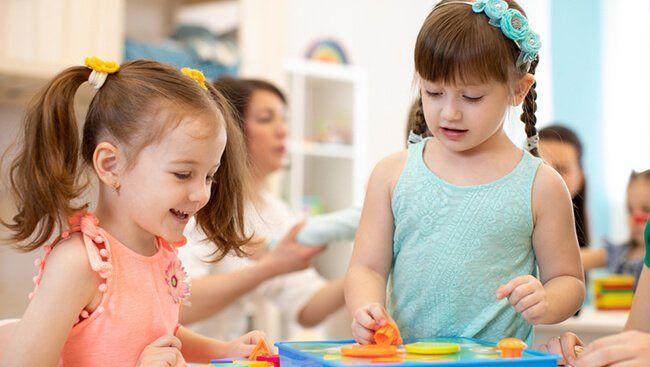
Advantages of the Montessori System: Fostering Lifelong Learning and Personal Growth
The Montessori system is a unique and innovative approach to early childhood education that emphasizes hands-on, experiential learning and individualized instruction. While the Montessori system may not be suitable for everyone, it offers a range of advantages that can benefit children in many ways.
In this article, we will explore the key advantages of the Montessori system and how it can foster lifelong learning and personal growth. Let’s dive in!
Individualized Learning:
One of the most significant benefits of Montessori education is the emphasis on individualized learning. In traditional schools, students often receive a one-size-fits-all education, with little attention paid to individual differences in learning styles and needs. Montessori schools, on the other hand, recognize that every child is unique and learns differently. In a Montessori classroom, each child can learn at their own pace and follow their interests. This approach allows children to understand their learning concepts deeply and builds confidence and independence.
Emphasis on Hands-On Learning:
Montessori education emphasizes hands-on, experiential learning, allowing children to engage with their environment and learn through exploration and discovery. Children are encouraged to manipulate objects, explore nature, and engage in practical activities promoting independence and self-sufficiency. This approach fosters a love of learning and helps children develop problem-solving and critical-thinking skills.
Social Development:
Montessori schools provide a supportive environment that encourages social development. Children learn to work collaboratively, share materials,
and respect others’ ideas and opinions. The Montessori method emphasizes the development of empathy, compassion, and kindness toward others. Children learn to communicate effectively, resolve conflicts, and develop leadership skills through social interaction and group activities. By promoting a culture of inclusion and respect, Montessori education helps children develop positive social skills that will serve them well throughout their lives.
Development of Independence
The Montessori system strongly emphasizes independence and self-sufficiency, starting from a young age. In Montessori classrooms, children can learn independently and follow their interests. Teachers act as guides, providing support and encouragement as children work independently or in small groups. This approach allows children to understand their learning concepts deeply and builds confidence and independence.
Emphasis on Creativity and Imagination:
Montessori education promotes creativity and imagination by encouraging children to explore and express themselves in various ways. Children can express themselves creatively and develop their unique style through music, art, and movement. Montessori schools also provide opportunities for children to engage in imaginative play, which fosters creativity and enhances problem-solving skills. By encouraging children to use their imagination and explore their creativity, Montessori education helps children develop a love for learning and a sense of wonder about the world around them.
Critical Thinking and Problem-Solving Skills:
Montessori education emphasizes hands-on, experiential learning, which helps children develop critical thinking and problem-solving skills. Children learn to solve problems and think independently by engaging in practical life activities. Montessori schools also use a multi-sensory learning approach, allowing children to develop cognitive skills through exploration and discovery. By providing a stimulating and challenging environment, Montessori education helps children develop critical thinking skills that will serve them well throughout their lives.
Resilience and Self-Regulation:
Montessori education helps children develop resilience and self-regulation skills by providing a supportive and nurturing environment. Children are free to make choices and learn from their mistakes, which helps them develop resilience and a sense of self-efficacy. Montessori schools also teach children self-regulation skills, such as mindfulness and emotional regulation, which help children manage their emotions and behavior. By promoting resilience and self-regulation, Montessori education helps children develop a strong sense of self and the ability to manage challenges and setbacks.
Preparation for the Future:
Montessori education is designed to prepare children for the academic and social future. Children learn to work independently and collaboratively, developing skills that will serve them well in the classroom and beyond. Montessori graduates are known for their ability to think critically, solve problems, and communicate effectively.
Positive Self-Image:
Montessori education emphasizes the whole child’s development, not just academic learning. Children are encouraged to develop a positive self-image, emphasizing their strengths and unique qualities. This approach builds self-esteem and confidence, providing children with a strong foundation for future success.
Development of Social Skills
Montessori schools also place a strong emphasis on social development. Children learn to work collaboratively, share materials, and respect others’ ideas and opinions. The Montessori system fosters community and belonging, helping children develop strong interpersonal skills essential for success.
Focus on Lifelong Learning:
Montessori education fosters a love of learning that lasts a lifetime. Montessori schools help children develop a deep understanding of their learning concepts by emphasizing hands-on, experiential learning and individualized instruction. This approach builds a strong foundation for lifelong learning, helping children develop a sense of curiosity and exploration that will serve them well throughout their lives.
Individualized Instruction
The Montessori system provides individualized instruction to each child based on their unique interests, needs, and abilities. This approach ensures that every child receives the support and guidance they need to reach their full potential. Teachers in Montessori schools carefully observe each child to determine their strengths and weaknesses and then provide appropriate materials and activities to support their learning.
Preparation for Real-World Success
The Montessori system prepares children for real-world success by teaching practical life skills and problem-solving abilities. Montessori schools provide a prepared environment with specialized materials and activities to promote hands-on, experiential learning. These materials and activities are designed for real-life situations, helping children develop the skills they need to succeed.
Abstracts
Montessori education is a unique approach to early education that emphasizes child-centered learning and hands-on, experiential learning. The benefits of Montessori education are numerous, from individualized learning and hands-on exploration to social development and critical thinking skills. Suppose you are looking for a holistic approach to early education to help your child develop into a confident, independent, and resilient individual. In that case, Montessori education may be the right choice for your family.



